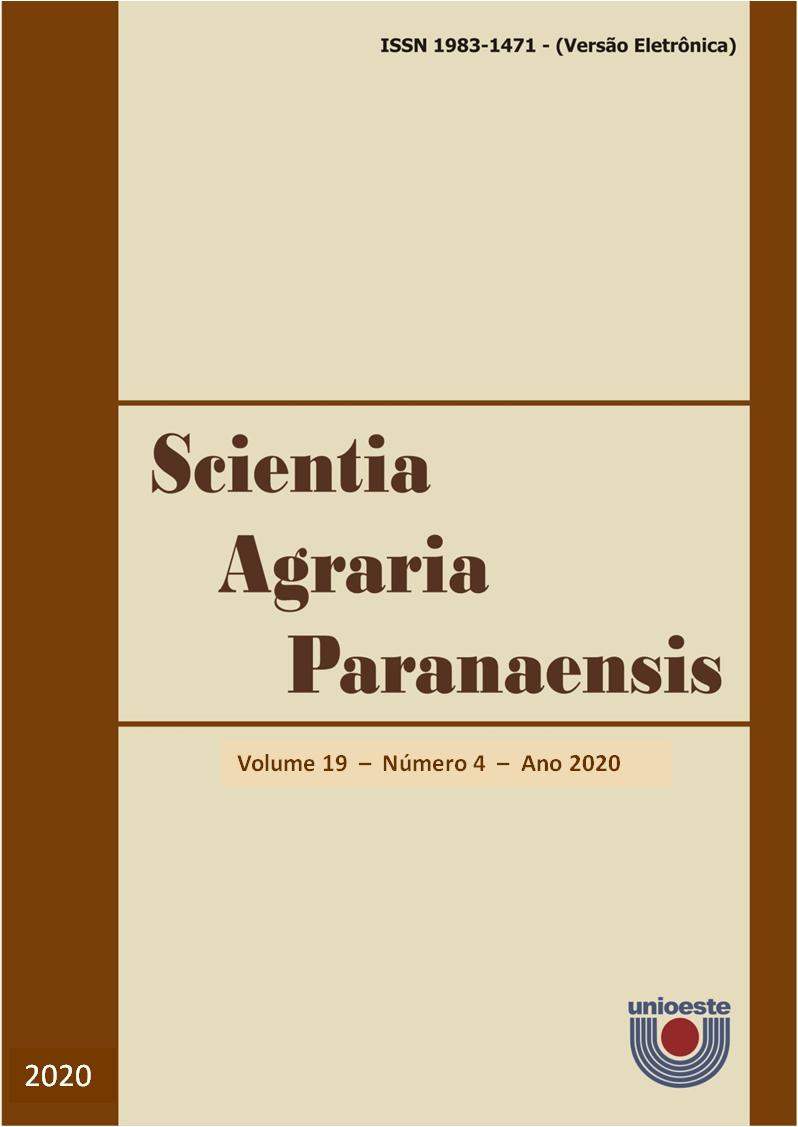Modification in the sensory profile of coffee through anaerobic fermentation techniques in processing methods
DOI:
https://doi.org/10.18188/sap.v19i4.25689
Agências de fomento
Consórcio Pesquisa Café, FAPEMIG, CNPq, CAPES, INOVACAFÉ
Resumo
One technique that has been drawing the attention of producers is the induced fermentation of the fruits. In the induced fermentation process, the fermentation speed is increased, but environmental interferences with different microbiota can alter the fermentation process, making it difficult to repeat the results. The objective was to induce anaerobic fermentations in coffee fruits, through different processes, aiming at modifying the sensory profile of the beverage. The experiment was conducted in 2019, with ‘Mundo Novo IAC-379/19’ coffee fruits, which came from full harvest, with 70% of fruits in the parchment stage. On the day of harvest, the coffee was separated into 78 experimental plots, each containing 10 L. The treatments used were: addition extract of Citrus reticulata, Carica papaya, Ananas comosus, Eucalyptus spp. leaf and addition of sugar, at concentration of 10% in aqueous solution (stored in 12 L buckets) and treatment with water only. 24 and 48h fermentation periods were tested, besides two processing methods, natural and with peeled fruits. In addition, the fruits were tested without induced fermentation for natural and peeled coffee. It is concluded that the treatment with fermentation induced for 24 h without the addition of extracts in wet processing yielded coffees of better sensory quality, with a final score of 85.33. The wet processing of coffee fruits without the addition of extracts, immersed in water for 24 h, yielded better sensory quality. The addition of Ananas comosus extracts implies a reduction in the sensory quality of coffee in the induced fermentation process.Downloads
Arquivos adicionais
Publicado
30-03-2021
Como Citar
SILVESTRE, J. P. de M.; VOLTOLINI, G. B.; ALECRIM, A. de O.; MALTA, M. R.; SILVA, L. C. da; NADALETTI, D. H. S. Modification in the sensory profile of coffee through anaerobic fermentation techniques in processing methods. Scientia Agraria Paranaensis, [S. l.], v. 19, n. 4, p. 403–410, 2021. DOI: 10.18188/sap.v19i4.25689. Disponível em: https://e-revista.unioeste.br/index.php/scientiaagraria/article/view/25689. Acesso em: 13 dez. 2025.
Edição
Seção
Artigos Científicos
Licença
Aviso de Direito Autoral Creative Commons
Política para Periódicos de Acesso Livre
Autores que publicam nesta revista concordam com os seguintes termos:
1. Autores mantém os direitos autorais e concedem à revista o direito de primeira publicação, com o trabalho simultaneamente licenciado sob a Licença Creative Commons Attribution que permite o compartilhamento do trabalho com reconhecimento da autoria e publicação inicial nesta revista.2. Autores têm autorização para assumir contratos adicionais separadamente, para distribuição não-exclusiva da versão do trabalho publicada nesta revista (ex.: publicar em repositório institucional ou como capítulo de livro), com reconhecimento de autoria e publicação inicial nesta revista.
3. Autores têm permissão e são estimulados a publicar e distribuir seu trabalho online (ex.: em repositórios institucionais ou na sua página pessoal) a qualquer ponto antes ou durante o processo editorial, já que isso pode gerar alterações produtivas, bem como aumentar o impacto e a citação do trabalho publicado (Veja O Efeito do Acesso Livre).
Licença Creative Commons
Esta obra está licenciada com uma Licença Creative Commons Atribuição-NãoComercial-CompartilhaIgual 4.0 Internacional, o que permite compartilhar, copiar, distribuir, exibir, reproduzir, a totalidade ou partes desde que não tenha objetivo comercial e sejam citados os autores e a fonte.


